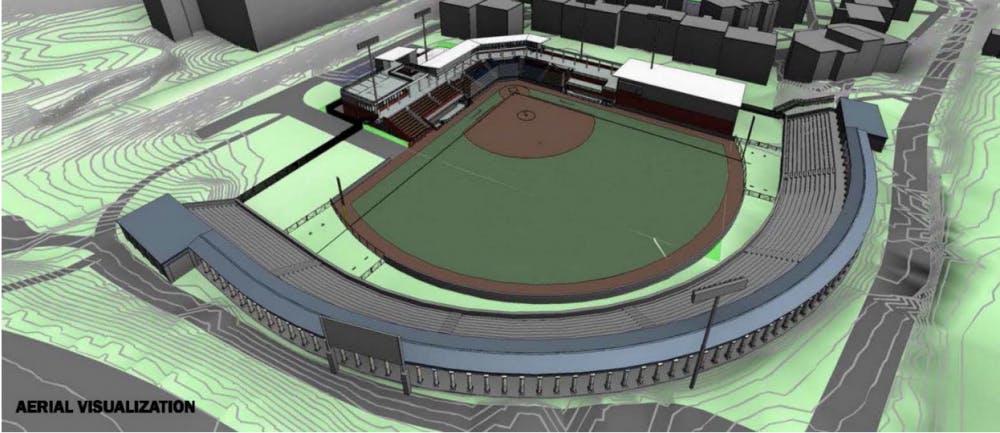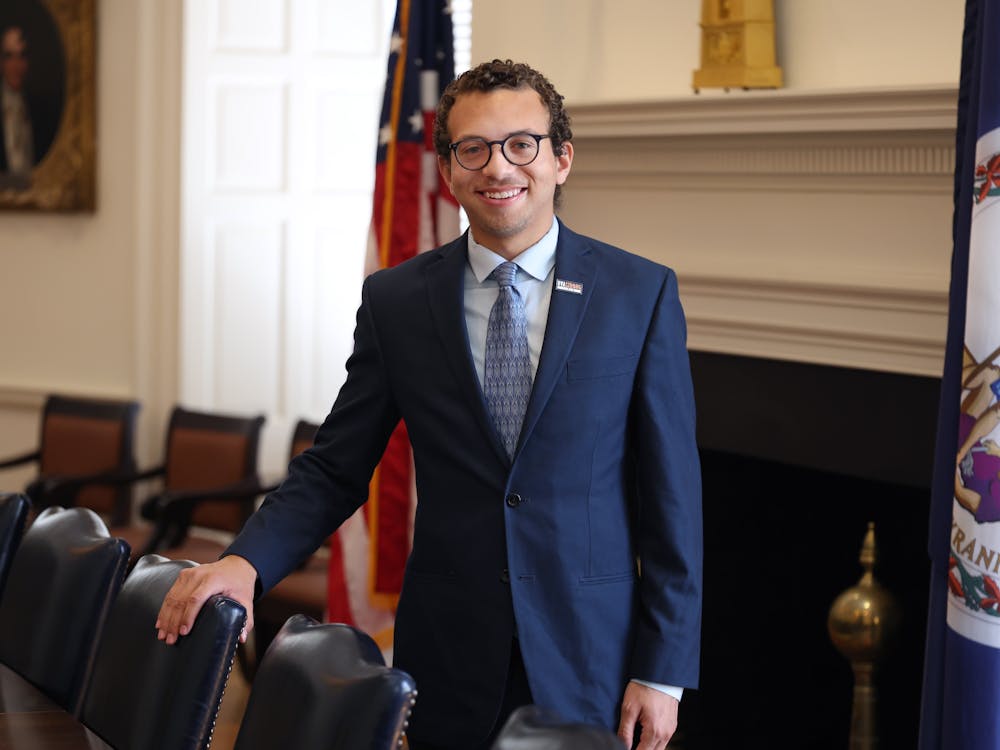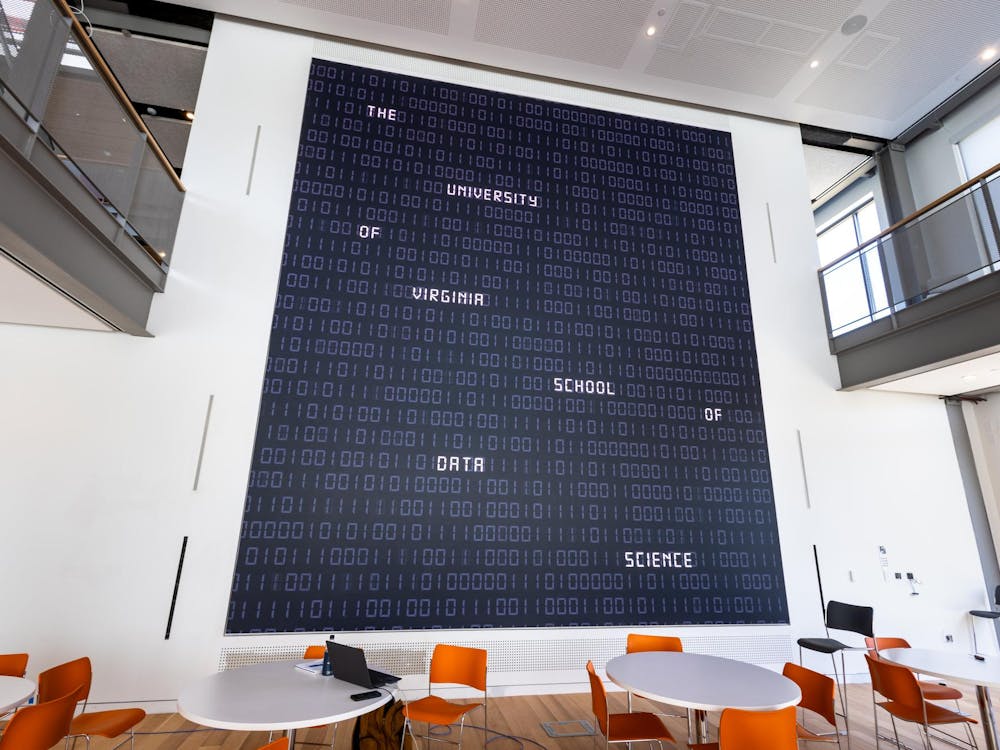The University’s Board of Visitors Buildings and Grounds Committee will defer a vote on the site for a softball stadium that has been proposed to be constructed at Lambeth Field, according to an email sent to Lambeth Field Apartments residents Monday evening.
The proposed stadium has proven to be controversial because some students and local residents living close to the proposed location have voiced concerns that the University has excluded them from the planning process. They have also raised questions about the potential impacts of noise, lights and parking.
Agenda materials released Monday indicated the committee was originally expected to approve an architect for the project, as well as the concept, site and design guidelines Thursday.
The email sent by a Senior Resident at Lambeth Field Apartments to students Monday said the administration will still ask the committee to approve an architect for the site, but “the vote to approve the site ... has been temporarily deferred.”
The email noted that Colette Sheehy, the University's senior vice president for operations, and the team of people involved with the project "plan to work with the design consultant to study the issues raised by Lambeth residents, specifically involving parking, noise, lights, and the creation of a new recreation field on the west side of Lambeth Field Apartments."
Charles Marsh, a Religious Studies professor who lives on University Circle, previously told The Cavalier Daily that the plans to construct the stadium at Lambeth Field have failed to address important issues that would affect the surrounding neighborhood.
“We are frankly aghast by the news and scrambling to understand how such a consequential decision was made without student involvement, community dialogue, or studies evaluating noise, lighting, parking or property value impact,” Marsh said in an email. “The stadium will undoubtedly cause great disruption to residents of Lambeth [Field] Apartments and the surrounding neighborhoods.”
The current design places home base just north of the Chesapeake & Ohio Railroad, with the first base line running parallel to the tracks. The stadium facility would be located southeast of Lambeth apartments, and the historic colonnades at Lambeth Field would encompass the outfield.
A majority of the existing parking lot at Lambeth Field would be replaced with a recreational field.

Courtesy University of Virginia
A description of the project in the agenda materials says the facility would include a home locker room, lounge doubling as a nutrition area, sports medicine room, team meeting rooms and both home and visitor bullpens.
“The goal of the project is to create a compelling team and spectator experience that is contextually thoughtful of the existing colonnade while respecting the adjoining residential properties,” the agenda reads. “Ideally, coaching and support staff offices will be located on an upper-level of the facility, and a new press box will be located above the concourse that will accommodate the scoreboard system, replay booth, and spaces for TV, radio, and print media.”
The agenda also notes that upgrades to better facilitate pedestrian and vehicle access to the stadium will need to be made.
The new stadium would allow the University to host collegiate tournaments, like the ACC and NCAA Tournaments.
University officials previously met with leaders from University Circle and Venable neighborhoods Nov. 1 to discuss the construction proposal and hear their concerns for the first time.
In an email to The Cavalier Daily, University Deputy Spokesperson Matt Charles said that the purpose of the meeting was “to provide an overview of the proposed project and to hear their concerns so that the University could incorporate this feedback into the development of the design.”
Charles has also said that potential stadium nuisances should be mitigated with new advancements in technology such as directional lighting, and utilizing the Culbreth parking garage so there wouldn’t be people parking in neighborhoods.
A meeting was also held with neighboring residents last Sunday.
Matthew Healy, a second-year College student and Lambeth resident told The Cavalier Daily he feels one of the reasons students like Lambeth is because of the existing field space. He met with other Lambeth residents, a senior resident of Lambeth and University officials involved with the project last week.
“I went into the meeting thinking they were going to ask how we were going to feel about it and just trying to get our perspective,” Healy said. “They did listen to our input and concerns, but at the same time it’s kind of late to listen to people’s concerns when they already have a plan scheduled to present it to the Board of Visitors for a vote.”
Neighboring residents say the University told them that a donor — whose name was not given — is providing the funds to construct the stadium. The University did not include a cost estimate in the committee agenda for Thursday and did not return a request for comment regarding the cost.







